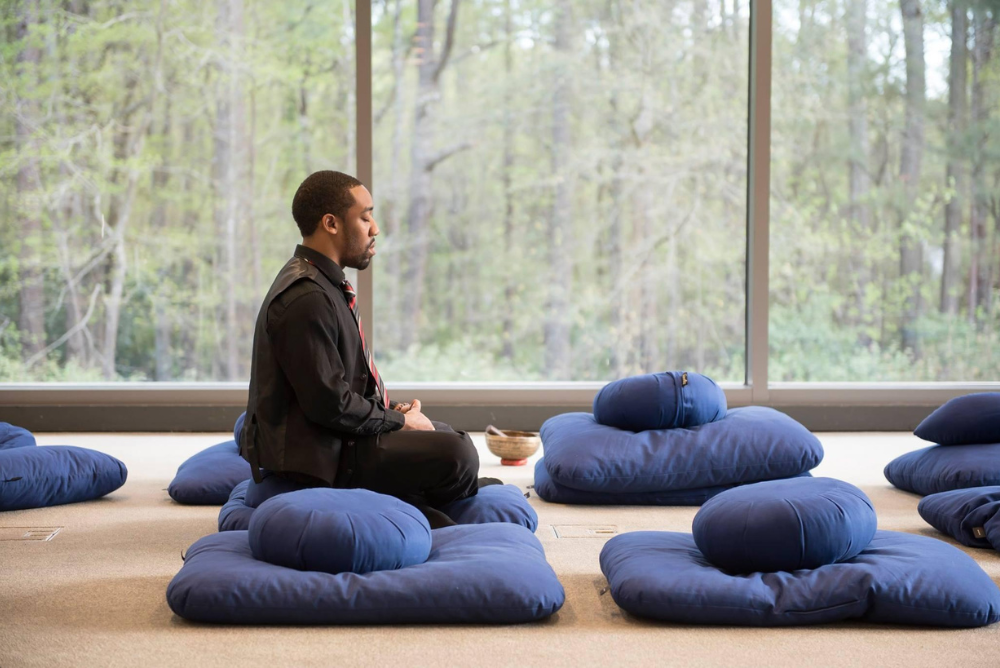We all deal with stress on a daily basis, whether we’re old or young, big or small, high-flying thinkers or practical doers.
Even the most experienced meditator and peaceful yogi experiences this inevitable aspect of the human experience.
It is inevitable and brings with it a variety of distracting and uncomfortable symptoms.
Stress is not just a feeling or a state of mind; If you don’t deal with it, it invades every aspect of your life.
One way to deal with stress is through the Mindfulness-Based Stress Reduction, or MBSR, an eight-week course that teaches how to use mindfulness in everyday life. It’s a proven way to deal with the stressors of everyday life.
What is mindfulness-based stress reduction?
Mindfulness-Based Stress Reduction (MBSR) is a therapeutic technique in which a trainer guides participants through weekly practices such as meditation and yoga. to reduce stress levels. MBSR is a popular way to help people with anxiety, depression, chronic pain, addiction, immune disorders, high blood pressure, and more. MBSR is a flexible and customizable approach to reducing stress.
It consists of two main components: mindfulness meditation and yoga.
Rather than following a script or following meticulously outlined steps, mindfulness is practiced in a way that works best for the person.
While MBSR is often different for each practitioner, it is based on the same principles. A medically heterogeneous environment in which people with a wide variety of clinical pictures take part in classes together without separation according to diagnosis or illness and interventional specializations.
This approach has the benefit of focusing on what people have in common rather than what is specific about their particular illness (what is “right” about them rather than what is “wrong” about them), leaving other dimensions of the Healthcare teams and, where appropriate, specialized support groups for specific patient populations.
What happens in an MBSR session?
An MBSR program typically runs once a week for eight weeks. The length of each session depends on the program, but generally they last two to three hours. During each session, a certified trainer teaches participants a mindfulness technique, which they practice together as a group.
During MBSR sessions, people strive to cultivate greater awareness of the present moment. By increasing their mindfulness, participants aim to reduce their overall arousal and emotional reactivity and gain a deeper sense of calm.
MBSR is designed to be performed in a group setting with a certified instructor. But also practicing mindfulness techniques yourself is part of the program.
An instructor teaches the following practices in MBSR sessions:
Breathing Techniques
You can learn diaphragmatic breathing, also known as abdominal breathing. As you inhale, your belly rises as you fill it with air; As you breathe out, your stomach will lower as you let the air out. These and other types of mindful breathing can slow your heart rate and lower your blood pressure, making you feel more relaxed.
Gratitude Journaling
An instructor may encourage you to keep a gratitude journal, which means writing down the things you are grateful for in your life. This practice helps transform your attitude into a more positive and optimistic one.
Group Dialogue
Group members share their experiences while incorporating MBSR techniques into their daily lives.
Homework
Your teacher will most likely give you daily homework for the duration of the program. Tasks may include practicing -specific mindfulness techniques, listening to guided meditations, watching informational videos, and/or using a workbook distributed by the instructor.
Meditation
You will be taught mindfulness meditations. An example is a body scan meditation, in which you close your eyes and focus your attention on different areas of your body. The goal is to notice tension and visualize discomfort leaving your body. You can also practice loving kindness and mindful eating meditations.
Yoga
Your instructor will guide you through gentle yoga movements that can help relax your body and mind.
Final Thoughts
If you are considering trying mindfulness-based stress reduction, do so at a collegiate medical center, hospital, or clinic where classes are taught by qualified health professionals.
A primary care provider should be consulted before using MBSR to treat a specific health condition.
Suave Concierge’s professionals will help you with that. We can offer you MBSR therapy and full support as you recover from it.
So, get started by contacting us right away!

